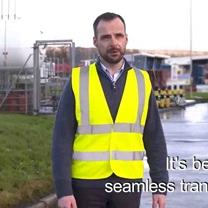
Drive your forklift operations to new heights with the power of Calor LPG. Increase productivity, reduce emissions, and enjoy peak efficiency.

Calor is a leading provider of LPG solutions in Ireland, trusted by businesses nationwide. Discover why we're the preferred partner:

I would describe our relationship with Calor as really one of a partnership. Their service levels allow us to drive our long-term environmental agenda and deliver our goals in relationship to sustainability.Mark Haughey, Plant Manager — Coca-Cola HBC, Ireland
